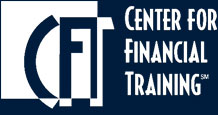The Dodd-Frank Act created the Ability to Repay rules within Regulation Z’s mortgage standards, and also created the concept of the ‘Qualified Mortgage,’ or QM. This QM standard provided legal protections that were embraced by the industry. Statistics show that as of 2018, only 4% of mortgage loans did not meet the standards of a QM. One of the principal requirements to meet the QM standard is that the borrower’s debt-to-income (DTI) ratio cannot exceed 42%. But an exception was built in, the so-called ‘GSE Patch.’ GSE stands for Government Sponsored Enterprise, and the GSEs are Fannie Mae and Freddie Mac. Essentially, if a loan would be disqualified from being considered a QM because the borrower’s DTI was too high, yet the loan would still qualify for insurance or purchase from a government entity, it would nonetheless be considered a QM.
But this GSE Patch is scheduled to expire. However, the CFPB has issued new final rules changing the definition of the so-called ‘General QM.’ DTI will no longer be considered for QM qualification; rather, a new pricing test was introduced. But that’s not all: there is a brand-new category of QM, called the ‘Seasoned QM.’ This is intended to provide the same degree of legal protection for loans that meet certain standards and have generally been in good standing for 36 months.
In this webinar we’ll discuss these changes and additions to the QM rules. We’ll provide all the details, to be sure you’re ready for these changes. These will impact not only compliance efforts, but also systems and lending policies.
Covered Topics
- Ability to Repay and QM rules: how did we get here
- What loans are covered by these rules?
- Changes to the ‘General QM’ definition ‘ change from DTI test to pricing test
- The new ‘Seasoned QM’ definition ‘ what does this mean? What loans are covered?
- What QM status gets you
- Safe Harbor vs. Rebuttable Presumption QMs ‘ how these new rules impact these categories
- Impact to systems and policies
- Expected effect on mortgage and secondary markets
Who Should Attend?
Bank counsel, compliance professionals, mortgage loan officers, loan processors, bank management.
Continuing Education (CE) Credits
This webinar is recommended for 2.5 CE Credit Hours. Each attendee will receive a Certificate of Attendance for self-reporting of CE Credits.
